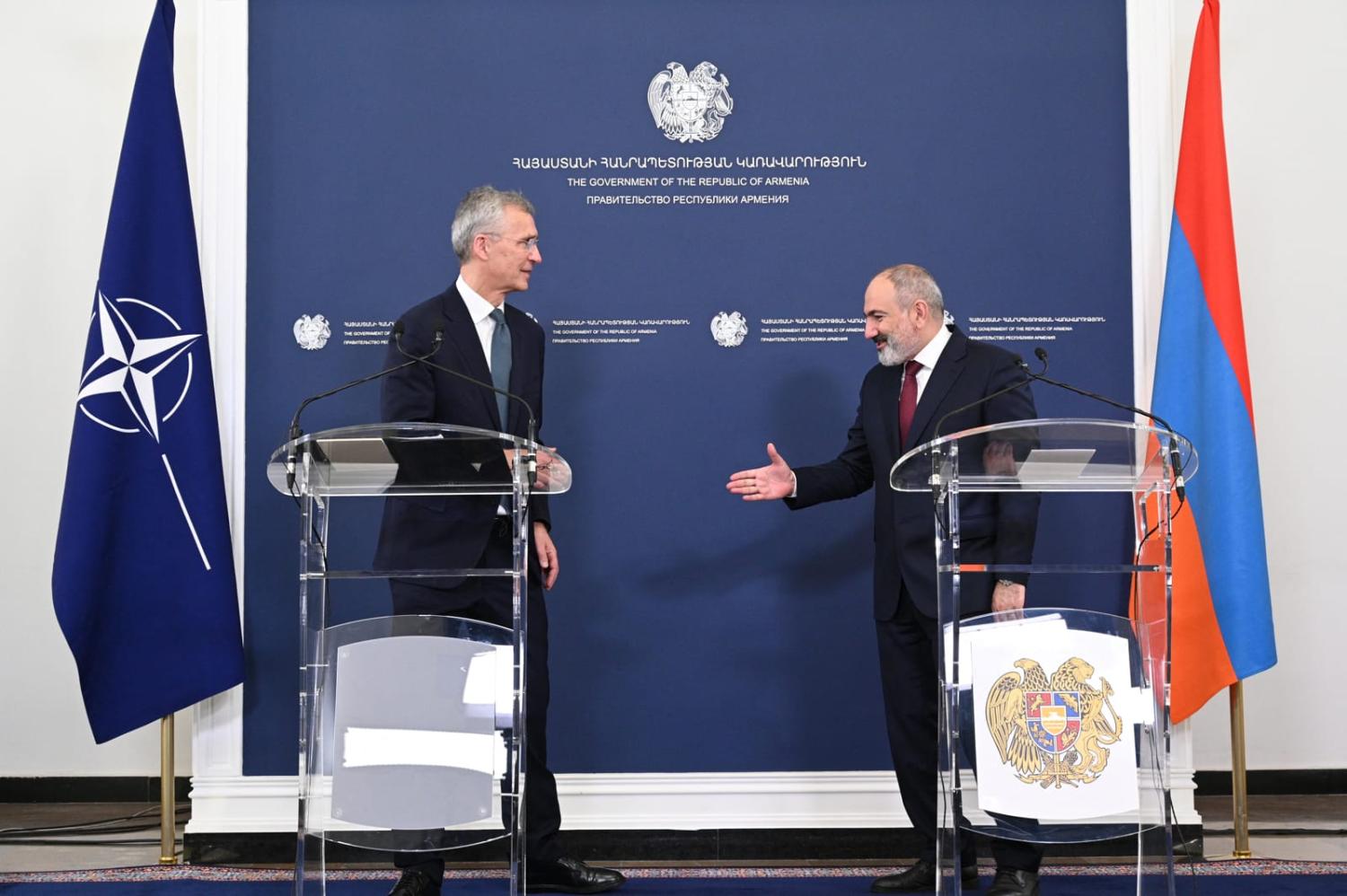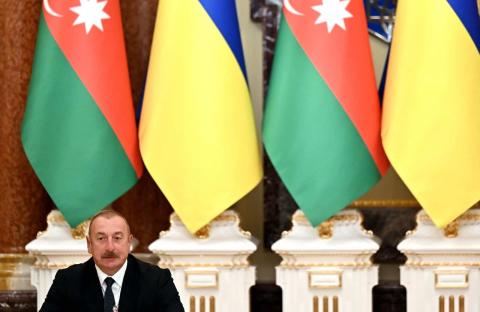A growing number of former Soviet republics, including Russia’s allies in the Collective Security Treaty Organization (CSTO), are distancing themselves from the Kremlin. Moscow continues to lose influence in the strategically important regions of South Caucasus and Central Asia, while nations that were once in its orbit attempt to develop close political, economic, and security ties with the West.
Long after the breakup of the Soviet Union in 1991, Russia continued playing the role of a de facto regional leader. But the Kremlin’s adventure in Ukraine had an impact on Russia's position in the post-Soviet space. Moscow is facing serious problems in its near abroad.
Quite aware that it cannot count on Russian protection if another war in the South Caucasus breaks out, Armenia froze its participation in the Russia-dominated CSTO military bloc on 23 February. Armenia now considers the United States and the European Union, rather than Russia, its major partners. An EU Mission has already been deployed to the border with Azerbaijan, as Armenia hopes that a Western presence in the region will deter Baku from launching an invasion of the landlocked nation of around three million.
Although Moscow seems worried about Armenia’s ambitions to establish close ties with the West, the Kremlin has not taken any practical steps to preserve the former Soviet republic in its orbit. Russian officials’ rhetoric that the EU Mission in Armenia is gradually becoming a “NATO mission” is unlikely to prevent Armenia from changing course.
The landlocked South Caucasus nation seems determined to end its partnership with Russia. Besides suspending its participation in the CSTO, Armenia has repeatedly signalled that it wants to join the European Union – which means that it would first have to leave the Russian-led Eurasian Economic Union (EAEU) – and also to significantly limit Russian security presence in the country.
Although Armenia has not formally joined anti-Russian sanctions, it continues distancing itself from Russia. Armenia’s decision to ratify the International Criminal Court’s founding Rome Statute indicates that the former Soviet republic has de facto imposed sanctions on Russian President Vladimir Putin, given that the ICC issued an arrest warrant for him on 17 March 2023 over alleged crimes in the invasion of Ukraine. Moreover, Armenian banks have recently stopped accepting Russian Mir cards, as the US Treasury Department threatened foreign banks with secondary sanctions for servicing the Russian card payment system.
The Kremlin’s reaction was rather weak. According to Putin’s spokesman Dmitry Peskov, Armenian banks stopped accepting Mir cards “not because of Yerevan’s policy, but because of unprecedented US pressure”. Following a serious crisis in Russian–Armenian relations, Moscow said “it knows that the United States and the European Union are seeking Yerevan’s withdrawal from the CSTO and the EAEU, as well as the withdrawal of the Russian military base and border guards from Armenia”. In other words, the Kremlin blames the West for its inability to preserve Armenia in Russia’s orbit.
In some Central Asian nations, Russia seems to have similar problems, too.
Back in the summer of 2023, it became apparent that Uzbekistan plans to buy weapons from the United States. “Our army will be provided with the most modern weapons and military equipment by 2030,” Uzbekistan’s President Shavkat Mirziyoyev said in May 2023, pointing out that “systematic measures will be taken to promote the Uzbek language, our national culture and traditions”.
Uzbekistan’s parliament also recently adopted a bill that would ban banking operations in the country for sanctioned individuals and legal entities. Although the law does not name Russia, some Russian media see it as Tashkent’s de facto accession to anti-Russian sanctions.
Neighbouring Kyrgyzstan, another member of the Eurasian Union, has taken steps similar to Uzbekistan and Armenia. On 4 April, Bishkek announced that it will stop accepting Russia’s Mir payment cards amid concerns it could expose the country's financial sector to Western sanctions. The official explanation is that servicing of Russian Mir bank cards in Kyrgyzstan was suspended “at the request of the Latvian company, which provides support for the work of the Interbank Processing Center”, which is the hardware and software provider for the national payment system of Kyrgyzstan.
Several Kazakh banks have also stopped servicing Mir cards amid rumours that recent attacks on targets in Russia's Tatarstan region were launched from the territory of Kazakhstan. Although Astana denied such insinuations, the largest country in Central Asia is following in the footsteps of other former Soviet republics, aiming to develop close ties with the West and reduce Russian influence.
It is no secret that Kazakhstan, despite being in both the CSTO and EAEU, plans to sign a treaty on strategic partnership with NATO member United Kingdom. For three consecutive years, Kazakhstan has refused to hold the 9 May Victory Day Parade, offering various excuses but seen as a signal that Kazakhstan wants to distance itself from Moscow, where 9 May is a revered date. In addition, the country aims to increase oil supplies to Europe via Azerbaijan, which would help Astana reduce its dependence on pipelines running through Russia.
All that clearly suggests that Russia will have a hard time preserving not only Kazakhstan but several other former Soviet republics in its zone of influence. And that’s the result of Putin’s “special military operation” in Ukraine.

